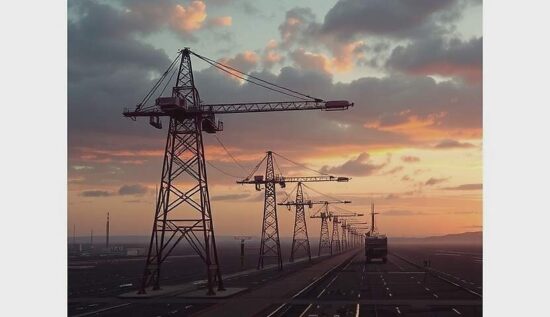US President Donald Trump’s plan to impose 25% tariffs on foreign-made vehicles could significantly impact the European automotive industry. The tariffs, if implemented for an extended period, could lead to a decline in exports, factory closures and a shift in business models. The US is a significant market for European automakers, with 15.8 million new vehicles sold in 2024, compared to 13 million in the European Union and 1.6 million in Russia.
The EU’s automotive industry, particularly the premium segment, relies heavily on the US market. In 2023, the EU exported around 1.1 million passenger cars, worth nearly $50 billion, to the US, with Germany being the largest exporter, accounting for half of the total volume. The German economy, however, has been in recession for two years and the automotive giants are struggling due to declining sales in both their home market and China, where the population is increasingly preferring Chinese-made vehicles.
Jaguar-Land Rover, a British company, is also facing a crisis and the loss of its significant US market will be difficult to absorb. The UK exports 150,000 vehicles to the US, which may not seem significant, but accounts for nearly 20% of all British passenger car exports.
Dmitri Jewdokimov, a researcher at the Research Center for Space Analysis and Regional Diagnostics at the Russian Presidential Academy of National Economy and Public Administration, warns that if the 25% tariffs become a long-term norm, the European automotive industry will face a systemic shock. “Given the existing regulatory and environmental constraints in the EU, as well as the increasing production and logistics costs, such measures will affect the companies’ profit margins and lead to a decline in exports, factory closures and a restructuring of business models” he said.
Wladimir Tschernow, an analyst at Freedom Finance Global, estimates that the 25% tariffs could lead to a 15-25% price increase for German premium brands, which would reduce demand. The decline in auto exports from the EU to the US could be as high as 30-50%, resulting in losses of around $15-25 billion per year.
Mercedes and BMW have already begun relocating production to the US, while Volkswagen is facing serious problems, having already closed production sites in Germany and laid off employees. In the event of a 25% tariff, the German government could face a significant increase in unemployment, with up to 100,000 jobs at risk, according to Tschernow.
The Chinese automotive industry, on the other hand, is less affected, as it is not a significant exporter to the US and is focused on expanding in Latin America, Russia, the Middle East and Southeast Asia. Japan and South Korea, which are also major players in the global automotive market, might also be less affected, as they have already invested in production facilities in the US and Mexico.
However, the impact of the tariffs on the global automotive supply chain could be significant, as many companies are interdependent. China is a major supplier of auto parts to the US and the tariffs could lead to a decline in the competitiveness of Japanese and South Korean automakers, particularly in the mass-electric vehicle segment, according to Jewdokimov.
Olga Ponomarjowa, an expert at the Russian Foundation for Economic Policy, notes that the US is not only imposing tariffs on finished vehicles but also on auto parts, which could have a significant impact on the global supply chain. “Twelve Chinese companies have already set up production facilities in Mexico to supply parts to European carmakers such as BMW, Mercedes and Volkswagen, as well as to US carmakers like Ford, GM and Tesla, under the USMCA agreement” she said.
The impact of the tariffs on the Chinese automotive industry will depend on its ability to adapt, with some companies already under pressure due to a decline in demand on the Chinese domestic market and protectionist measures in the EU and Russia, according to Ponomarjowa.
Experts also disagree on the likelihood of foreign automakers building new





